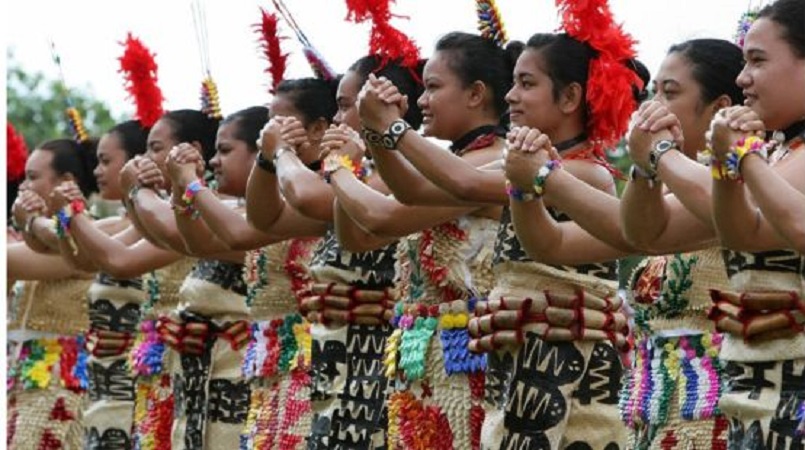
NUKU’ALOFA: Tonga is still as ancient as its ancient status − the origin of all Polynesia − according to anthropologists
Not very much has changed in the five months I was away. And neither, did the country change much during the 40 years I went away in search of higher education, and decided to stay a bit in the U.S.
During the reign of the late King Siaosi Tupou V, a more democratic government was ushered in, effective 2011. More Peoples Representatives were elected to the unicameral Legislative Assembly Branch (Parliament), which also elected the Prime Minister into the Executive Branch (Cabinet) of Government; but ultimately headed by King Siaosi Tupou VI and His Privy Council.
According to the 1875 Constitution, Tonga is ruled by three independent branches including a Judiciary Branch. King George Tupou I, the father of modern Tonga, inaugurated His new Constitution fashioned after the three-branch government of the United States where the monarch is protected as head of the Executive Branch perpetually. Unlike the English system, where the monarch is just a figurehead, Tupou I ensured that the “Tu’i Kanokupolu” line of royalties remain in power in perpetuity. And most Tongans prefer their royalties.
Traditions in fact die hard in Tonga. While most Tongans are considered 98% literate where they can read and write in Tongan, most seem to prefer receiving their news orally (by radio, TV, and in kava parties). They seem to trust their traditional oral history more than the written word.
TONGAN LANGUAGE THREATENED
Newspapers as a dying art, and a popular mode of recording historical events, news, photography, educational research and editorial writing is surviving in the Tongan language. There are five weekly newspapers − and several religious publications − but only one newspaper publishes bilingually in English and Tongan.
The electronics media is gaining popularity with the availability of computers and the Internet where English dominates. Otherwise, the Internet is still the privilege of the elite and wealthy. The Internet could boost Tonga’s quality of education to keep up with world standards only if Government provides free Internet access for all Tongans. The disparity between the haves and the have-nots is quite noticeable.
My English-Tongan Composition courses that I teach at Tonga International Academy is an attempt to reverse this detrimental trend. The popularity of corrupting the Tongan language in the news media, commercialized marketing and sales broadcasts, is similar to the corrupted staged of the Hawaiian language, which culminated in the early 1970s.
I witnessed this sad Hawaiian affair while attending Brigham Young University-Hawaii. Cultural academics brought a “Hawaiian Language Renaissance” campaign, but it was too late. The Pidgin-English Hawaiian has obliterated the Hawaiian language into oblivion, and into extinction. Sadly enough, the Tongan language is heading down the same path.
FIRST YEAR OF REVERSE-CULTURAL SHOCK
Psychologists call my situation “reverse-cultural shock”. Upon returning home from a long absence, one finds it difficult to deal with unexpected developments. The most obvious during my first year back (2014-2015) was the bastardization of the Tongan language in the political arena, and in the news media.
Public speeches in the Tongan language are cluttered with Tonganized English words (Pidgin English-Tongan), and phrases. Journalists are the worse purveyors in this exploitation of the Tongan language. Either they’re too lazy to use reference materials for correct translations, or they are ill-educated. To be cute on radio commercials, showoff a product’s hip, and using street-talk jargons are being promoted as “advanced sophistication.”
But to find solace in my hour of horrific dissatisfaction with the deterioration of the Tongan language, I go to one of the traditional Tongan church services. Their ministers and preachers pray and preach in true Tongan fashion. They don’t need Tonganized English words to deliver their message; they are very well-versed on traditional Tongan oratory; and I believe God listens more intently to a true Tongan prayer, rather than in Pidgin-English Tongan.
Being the root language of all Polynesian languages, the corruption that is currently infecting the Tongan language is threatening its extinction. Its historical and traditional values to Tonga and the rest of Polynesia is irreplaceable.
(Sione A. Mokofisi is a published Tongan writer. He holds an MBA degree from the University of Phoenix-Arizona where he is currently a candidate for the doctor in business administration. He earned a B.S. degree, and Diploma in travel industry management from BYU-Hawaii; and an A.A. degree from Mesa College-Arizona. E-mail contact: s1mokofisi@yahoo.com). The views expressed in this article are that of the writer and not this website.
